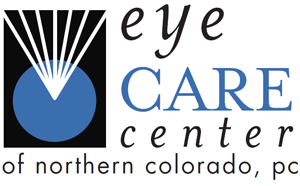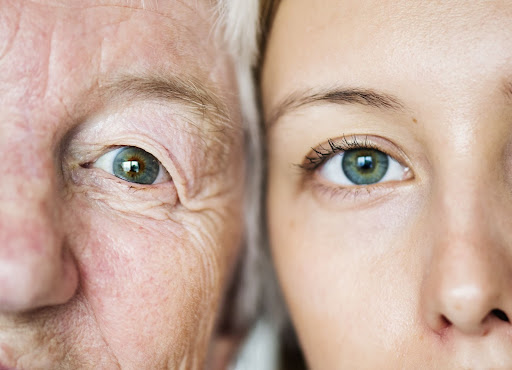Our ability to see the world around us is something we can take for granted. Loss of sight, suddenly or over time, can be devastating to our lives. Fortunately, there are steps you can take to prevent and reduce eye injury and deterioration. Here are ten tips for preventative eye care:
1. Schedule Regular Eye Exams
A regular eye exam at your local vision center can help contain a problem before it has a chance to develop.
- Children should have their first eye exam at three to four years of age, and then every other year.
- In your twenties, you ought to have at least one complete eye exam and two in your thirties.
- At forty you need to have a baseline comprehensive eye exam.
- After 65, see your ophthalmologist every one to two years.
In the case that you require contact lenses, you would need to see your eye doctor annually. If diabetic, make sure to keep up with your primary care physician and your ophthalmologist to avoid diabetic retinopathy.
2. Know Your Family History & Keep Up with Chronic Health Conditions
Early diagnosis and treatment can aid in preventing vision loss. Make sure to inform your eye doctor of any family history of eye disease or any chronic conditions you suffer from. Those with high blood pressure and diabetes should remain especially vigilant to avoid retinopathy, choroidopathy, optic neuropathy, or diabetic eye disease.
3. Thrive Through Diet and Exercise
According to the American Academy of Ophthalmology, “Eating a diet rich in plant-based foods and low in saturated or animal fats is best for healthy eyes.” In fact, maintaining a diet rich in-
- Vitamin C
- Vitamin E
- Zinc
- Lutein & Zeaxanthin
- Omega-3 fatty acids
could reduce the risk of age-related macular degeneration and cataracts.
Additionally, the eye thrives when it receives oxygen through proper blood flow. Exercising five times a week for at least thirty minutes can aid in healthy circulation and weight maintenance, which could also lower your risk of diabetes and diabetic retinopathy.
4. Avoid eye injury
One of the easiest preventative measures is simply to protect your eye from injury. Wearing protective eyewear during sports, home maintenance and repairs wards off the majority of eyesight loss due to injury. In addition, wearing sunglasses/ski goggles and hats when outside (whether summer or winter, rain or shine) limits excessive exposure to UV rays and lowers your risk of certain eye diseases and other issues. There has also been an increase in eye injuries due to “protests, riots and urban warfare” according to the American Academy of Ophthalmology.
If your eye DOES become injured see your Boulder, Longmont, Lafayette, or Greeley eye doctor immediately. And:
- DO NOT touch, rub, or apply pressure to your eye
- DO NOT try to remove an object stuck in your eye
- DO NOT apply ointment or medication to your eye without the guidance of your ophthalmologist
5. Quit Smoking
The health benefits of quitting smoking are vast and established. Yet you might not have known that smoking can also damage your eyes. There is an increase in risk of eye diseases like macular degeneration and cataracts, as well as complications related to cardiovascular disease.
6. Work Safely
Safety goggle use on any job involving dust, chemicals, sparks or possible injury by an object is imperative. However, many don’t realize the strain that a computer screen puts on their eyes. In order to minimize eye strain, follow the 20-20-20 rule developed by Dr. Jeffrey Anshell. “Every 20 minutes, shift your eyes to look at an object at least 20 feet away, for at least 20 seconds.” Proper use of the 20-20-20 rule can minimize red, watery, or dry eyes, blurred vision and headaches.
7. Care for Your Contacts
Properly handling your contacts can diminish your chance of eye infection. Make sure to:
- wash your lenses with solution, never tap water
- keep the case clean and dry between uses
- replace your case every three months
- remove and store your contacts when swimming, sleeping or showering
8. Mind Your Makeup
It isn’t a myth: makeup can cause potentially blinding eye infections. However, it is simple to avoid the danger by following a few simple standards.
- Never share eye makeup.
- Wash eye makeup off before bed.
- Replace eye makeup every three months.
- If your eyes have a strange reaction to anything (pain, redness, itching, etc.), make an appointment with your Boulder, Longmont, Lafayette, or Greeley eye doctor immediately.
9. Be Aware
Pay attention to changes in vision and call your eye care center if you have symptoms like:
- blurry vision
- double vision
- pain in the eye
- eye injury
10. Educate Yourself
The Eye Care Center of Northern Colorado cares about your health. Please peruse our patient education portal for more information on caring for your eyes. And don’t forget to make an appointment at one of our Northern Colorado vision centers today.
Resources and References:
https://www.aao.org/eye-health/tips-prevention/preventing-injuries https://www.aao.org/eye-health/tips-prevention/young-adults

